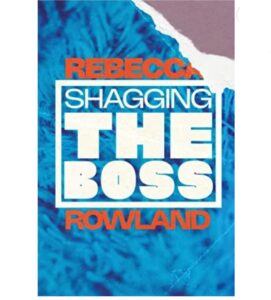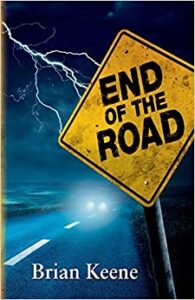I was going to wait a little longer before posting this, but then I saw that a number of news sites are now summing the situation up effectively. Here’s a link to NPR’s story, which includes an acknowledgement that they failed to mention the issue of piracy when they initially reported, favorably, on the National Emergency Library last week.
The “emergency” library set up by the Internet Archive is not an acceptable response to the shutdown of practically everything in the wake of the coronavirus; it cheats authors, booksellers, and publishers out of money they’ve earned the hard way. But the response also reveals something about the privilege necessary to be a reader, and, in particular, a reader of ebooks. I find it fascinating that the same people who were totally against ebooks 20 years ago are now evangelizing them, as if they are the great solution to having our bookstores and libraries closed. Libraries have free access to ebooks, right? Well, not really. What libraries have is expensive access to ebooks. Libraries pay for each ebook license they purchase, much more than they would for a hardcover copy, and can only check out the book a limited number of times before the license expires and they have to get a new one. The same ebook can only be checked out to one person at a time. The result, unless you live in a community that is willing to empty its pockets and then some to fund a library ebook collection, is that most libraries have limited ebook collections. I actually do live in one of those communities, and there are still a lot of books that don’t show up when I search them in ebook format. So yes, libraries can provide “free” access to ebooks, but not all libraries have all ebooks available to their users.
Accessing ebooks also requires technology. It is a privilege to have an ereader, a tablet, or a smartphone to read off of (it’s also a privilege to be able to read off a computer screen but I find it practically impossible) There is a literacy gap, a digital divide, that is uncrossable when the only access to books is electronic and there’s no tangible community space for books to be shared. Those ebooks nearly always exist in some kind of account in the cloud out there so you can find them when you want them. An account probably means some kind of personal information on file. For those of us who can’t find what we need in our library’s ebook collection, it is a privilege to be able to afford to purchase ebooks, even on the cheap, and probably the majority of those are purchased through Amazon or read through their app (yes, even library ebooks).
Something like the National Emergency Library exists in part because Brewster Kahle saw an opportunity and grabbed it. Many people assumed it was the same kind of thing as Project Gutenberg, with all the works legally available, because it presents itself as legit. But it becomes popular, in spite of the knowledge that many works are pirated, because reading is a privilege, one many can’t afford.
I think one thing that is becoming increasingly obvious as people “shelter in place” is how deep the divisions are when it comes to access to even the basics. As all parents have now suddenly become homeschool teachers, the socioeconomic and educational disparities affecting children’s education and their reading skills are going to become more and more evident. I was able to check out a Chromebook from the district for my kids to use to do their schoolwork on remotely, but some kids in other districts are working their way through paper packets.
For those people who have the technology and the funds, this is less of a big deal. But for those who don’t, well, without the necessary technology at their fingertips, we are poised to lose a generation of readers.
There is something inherently wrong with a bookish ecosystem where the majority of writers and booksellers are struggling to keep afloat, libraries are begging for funding, schools are falling apart, access to technology is scattershot, and the people who need information, help, and books the most are least likely to receive it. I don’t know how we fix this, but the beginning is recognizing that the surprise creation of the National Emergency Library is not something that needs a one-time fix. It’s a sign of a systemic failure in the bookish community, and that’s bad for all of us.
I am heartened to see the responses of many authors, who are either sharing their own work online or have given others permission to do so, and publishers (here’s a statement from the American Association of Publishers on their response, including education publishers. It’s long and detailed, and completely worth going through). Great work is also being done by the people who really want to support authors; Jim McLeod of Ginger Nuts of Horror has started a Facebook group for horror authors and publishers with books coming out now called Pandemic Book Launches. I am so thankful to see members of the bookish community working together to bring people together with books. The current situation has arisen from worldwide emergency, and it’s amazing to see what people are willing to do to make things work, but I don’t think it is sustainable long-term. Where do we go from here, to bridge that digital divide and ensure a future of engaged readers? With the cracks in the system now obvious to everyone, we cannot go back to the way things were.






Follow Us!